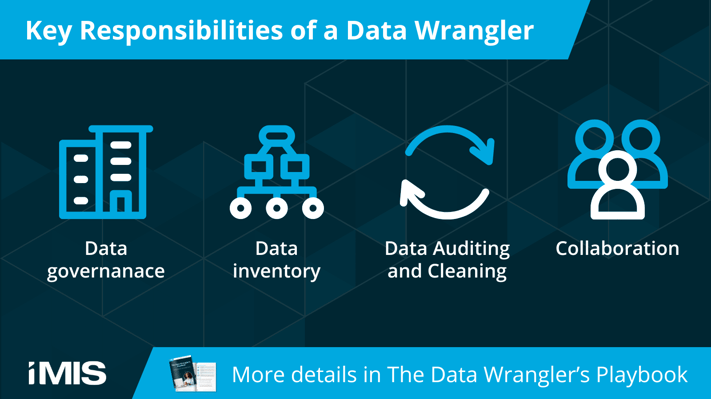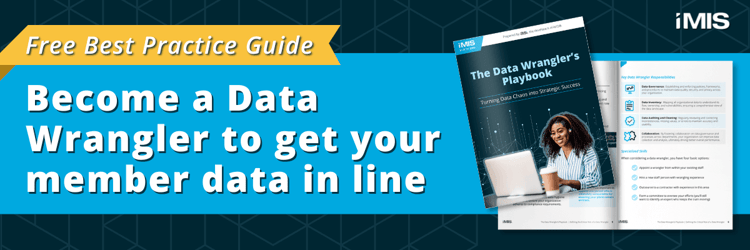Data Wrangling is the process of cleaning, transforming, and organizing member data into a consistent, accurate, and reliable format your organization can leverage.
A Data Wrangler is pivotal in establishing and maintaining the health and usability of your data. Filling this important role will drive better decision-making, enhance operational efficiency, and minimize your risk.
Data Wrangling is everyone's responsibility, but you need an expert.
Many organizations have a data wrangler who wears many hats and shares responsibility for executing data governance strategies. The wrangler doesn't need to be a full-time dedicated position.
Some organizations have a committee that regularly reviews plans and shares tasks in this work. But it's still important to appoint one person who is accountable for keeping your plan on track. Your union, nonprofit, or association data management will benefit from this critical role.
Key Data Wrangler Responsibilities
- Data Governance. Establish and enforce policies, frameworks, and procedures to maintain data quality, security, and privacy across your organization.
- Data Inventory. Map all organizational data to understand its flow, ownership, and vulnerabilities. This ensures a comprehensive view of the data landscape.
- Data Auditing and Cleaning. Regularly review and correct inconsistencies, missing values, or errors to maintain accuracy and usability.
- Collaboration. By fostering collaboration on data governance and processes across departments, your organization can improve data collection and analysis, ultimately driving better overall performance.

Options for Appointing a Data Wrangler
When considering a data wrangler, you have four basic options:

What to Look for in a Data Wrangler
In particular, you’ll want to look for a data wrangler/point-person who:
- Is Tech Savvy. They should have a strong working knowledge of your membership management system. IT experience is helpful but not essential. Your candidate might be an experienced Member Services, Marketing, or Accounting professional with deep institutional knowledge.
- Communicates Well. This person will need to collaborate with teams across the organization. They will need to have a positive attitude and be a good communicator. A sense of humor is always helpful to overcome awkward discussions.
- Builds Consensus. Different departments may have their own processes that they’re reluctant to change. A successful data wrangler will understand how to motivate your troops.
- Pays Attention to Detail. Ideally, your candidates will have exceptional organizational skills. Project management experience is a plus.
- Believes in the Outcome. Look for someone who understands the consequences of unreliable data and is comfortable championing the issue.

Key Benefits of a Data Wrangler:
Read more about the 5 Super Powers that Clean Data Gives Your Association.

The Data Wrangler's Playbook
As we all know, clean data can be harder than it sounds. Get started with our free guide, The Data Wrangler's Playbook. You'll be ready to put a plan into place to turn data chaos into strategic success.
This guide will help you:
- Define the critical role of a Data Wrangler.
- Identify and conquer your organization's biggest member data challenges.
- Lay out the 10-step plan to clean your membership data and keep it fresh going forward.
